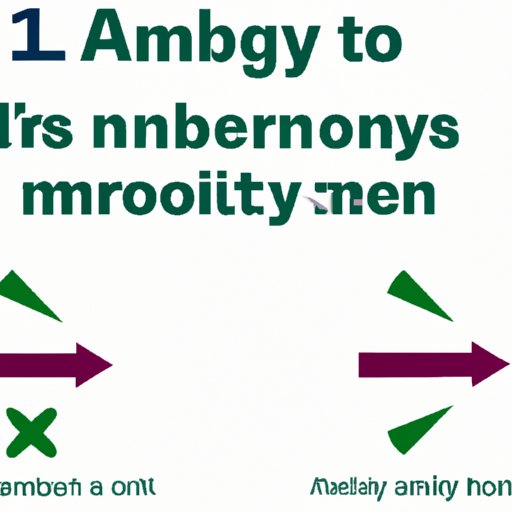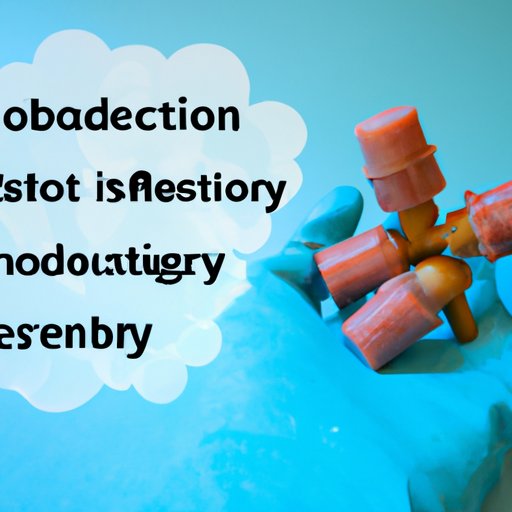
Introduction
Monoclonal antibodies have become an important treatment option for COVID-19 patients, especially for those with a higher risk of becoming severely ill. These antibodies are engineered in a lab to mimic the natural antibodies produced by our bodies to fight off the virus. Because these antibodies are highly specific, they can target the virus more effectively, helping to reduce severe symptoms and hospitalization rates. In this article, we aim to discuss whether it is possible to receive monoclonal antibodies twice and how this treatment can be used to fight COVID-19.
Can You Get Monoclonal Antibodies Twice? Here’s What We Know So Far
Currently, there is limited research on receiving monoclonal antibodies multiple times, particularly for COVID-19. At this time, the general guidance is to receive monoclonal antibody therapy as an initial treatment and to only receive them again if deemed medically necessary.
There are several possible reasons for this lack of data. One reason is that monoclonal antibody treatments have only been available since late 2020, so there has not been enough time to conduct long-term studies. Additionally, the demand for monoclonal antibodies has been high since the beginning of the pandemic, and many health care providers may have limited resources for repeat patients while they continue to try and provide these treatments to new patients.
Breaking Down the Science: The Possibility of Receiving Monoclonal Antibodies Twice
In order to understand whether one can receive monoclonal antibodies twice, it is helpful to have an understanding of how the immune system works. When a person is infected with COVID-19, their immune system responds by producing antibodies to fight the virus. These antibodies seek out and attach to specific parts of the virus to neutralize it.
However, over time, the number of antibodies decreases, which can make it easier for the virus to replicate and cause reinfection. For this reason, people who have had COVID-19 are advised to get vaccinated, which encourages the immune system to produce more long-lasting antibodies. In theory, people who have received monoclonal antibodies should also have stronger protection against the virus, but there is limited research on this topic as previously mentioned.
A Second Chance: Understanding the Efficacy of Monoclonal Antibodies for Reinfection
Currently, there are several types of monoclonal antibody treatments available, and each works a little differently. Some monoclonal antibodies, like bamlanivimab, target specific parts of the virus to prevent it from infecting cells or replicating. Others, like casirivimab and imdevimab, bind to different parts of the virus and help the immune system clear it out.
A study conducted by Regeneron demonstrated the efficacy of their monoclonal antibody cocktail for up to eight weeks after treatment. However, because there is limited data on patients receiving monoclonal antibody treatment for a second time, it remains uncertain how effective the treatment would be in preventing reinfection, particularly in the case of new COVID-19 variants.
Receiving Monoclonal Antibodies Again: What Patients Need to Know
If a patient has already received monoclonal antibodies and has become re-infected with COVID-19, they may be eligible for the treatment again, but it should only be given under medical supervision. It is important to always follow the guidance of a healthcare provider regarding any medical treatment. Depending on the amount of time between treatments, the dosage may need to be adjusted to ensure its efficacy.
It is also important to note that there can be potential side effects associated with monoclonal antibody treatment, including infusion reactions such as fever, chills, and itching. However, serious side effects are rare, and medical professionals can help monitor patients for any adverse reactions during the treatment process.
The Debate on Booster Shots: Exploring the Need for a Repeat Dose of Monoclonal Antibodies
Booster shots or repeat doses have become a hot topic in the COVID-19 research community as it is becoming a question of when and how people need to take additional doses to maintain their immunity. Monoclonal antibodies are no exception to this. There is currently a debate about whether repeat doses of monoclonal antibodies may be necessary for some patients to maintain their antibody levels.
One of the factors contributing to this debate is the emergence of new COVID-19 variants with different structures that may affect the efficacy of existing treatments. Research also indicates that antibody levels can decrease over time, and a booster dose may be necessary to maintain adequate levels of protection against the virus.

From Treatment to Prevention: The Role of Monoclonal Antibodies in Protecting Against Future Infections
Monoclonal antibodies are being studied for their potential use in preventing COVID-19 infections. Preliminary studies show that monoclonal antibody treatments may be effective in preventing COVID-19 in people who have been exposed to the virus.
However, there is still a debate about the overall use of monoclonal antibodies in prevention, particularly as a long-term solution. The primary concern is the cost associated with this type of treatment, which may not be sustainable for widespread use. Additionally, monoclonal antibodies for prevention purposes may only be recommended for people at high risk of infection, and even then, should be only given under medical supervision.
What the Experts Say: Debunking Myths About Receiving Monoclonal Antibodies Twice
There are several common myths surrounding monoclonal antibodies, including whether people need to receive repeat doses of treatment, or whether the treatment itself causes COVID-19. Experts agree that the risk of COVID-19 infection from monoclonal antibody treatment is incredibly low – effectively zero.
For many patients, it is unclear how long the effects of monoclonal antibody therapy would last and whether repeat doses will be needed. The scientific community is still trying to understand the long-term efficacy of monoclonal antibodies in fighting COVID-19, and until we have more data, patients should follow the guidance of their healthcare provider.
Conclusion
Overall, monoclonal antibodies have been a valuable tool in treating COVID-19. While there is still much to learn about receiving this type of therapy multiple times, initial research shows that it can be effective in preventing severe illness in high-risk patients. For those who are considering monoclonal antibody treatment, it is important to consult with a healthcare provider and follow their instructions carefully.




